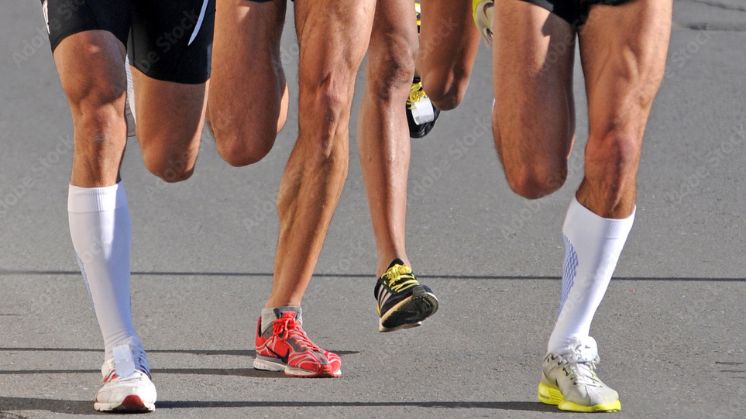Masters Athletics

Veteran athletics, also known as Masters, is a category within athletics that focuses on competitions for older athletes. It is designed for those who wish to continue to participate in athletic activities, generally after they have passed the age of 35. Thereafter, masters competitions are divided into different age groups, usually by five-year age ranges, allowing athletes to compete in relatively homogenous age groups, which allows for fairer competition. Also, competitions in masters athletics are similar to those in the general category and may include sprint, long-distance, jumps, throws and combined events.
One of the great examples of masters athletes is David Carr who, before his death, won five gold medals at the WMA Championships in Tampere (Finland) at the age of 90, another five at the WMA Indoor Championships in 2023 and achieved no less than six world records. And, although at 39 he is not yet competing in the masters category, a great example is Kenya's Eliud Kipchoge, the 2023 Princess of Asturias Award for Sports, who has won four marathon medals, the last a gold at Tokyo 2020 when he was almost 36 years old. He also has more than a dozen marathon victories worldwide and, in September 2022, set a new marathon world record (beating himself) at the Berlin Marathon.
Aurora Pérez, a member of the RFEA's Masters Athletes' Commission, whose career began in 1977 and continues to the present day, recognises that "athletics used to finish at around 35 years of age as the capacity for improvement was reduced", but that changed when the RFEA took over the masters category because "all of us who long for competition found a motivation to continue training".
Why continue doing sport beyond the age of 35? Aurora is clear that, beyond keeping in good physical shape, athletics "implies self-improvement and effort, which increases personal self-esteem and has positive effects on other areas of life". For the most successful Spanish masters athlete, "sport is the best medicine".
Whoever runs, competes. Against himself and against others. And this competitive gene does not fade with the passing of the years. Athletics is an individual sport, but it stands out for its ability to socialise, and this is one of the reasons for the great moment in master athletics.
Tips for a master athlete
Self control
We are growing older and our bodies are no longer as capable as they once were, so don't demand too much of yourself. Wear your age with pride!
Prevention
Do a stress test to make sure you're fit and in good form. Do not skip any medical check-ups!
Diet
Take good care of your diet because certain foods become more difficult to digest with each passing year. A varied diet is essential.
Safety
Take care of the surfaces on which you run and keep your sports equipment —your shoes in particular— in perfect condition.

Take your time
It is important to take time for breaks, warm-ups and stretches.
Health
Avoid prohibited medications! With age, the liver and kidneys lose their efficiency.
Be careful
Remember that you are an active athlete before seeking any prescriptions from your doctor.
Intensity
Training and exercise change according to your age. Consult a coach who will personalise your workout.
Tips for veteran athletes
If you are a veteran athlete or are considering participating in masters athletics events, here are some tips that might be useful to maximise your performance and enjoyment:
- Consult a health professional: Before beginning any training programme or participating in competitions, it is advisable to consult a physician or health professional to ensure that you are in good physical condition and that there are no restrictions to participating in athletic activities.
- Set realistic goals: Set realistic and achievable goals for yourself. Take into account your current fitness level, your athletic experience and any health considerations. Setting achievable goals will allow you to measure your progress effectively.
- Incorporate variety into your training: Include a variety of exercises in your training routine to improve strength, flexibility and endurance. This will not only contribute to your athletic performance, but will also help prevent injuries and improve your overall health.
- Warm up and cool down: Take time to warm up properly before your training sessions and cool down afterwards. Dynamic stretching and mobility exercises are essential to prepare your muscles and joints for physical activity.
- Proper recovery: Make sure you give your body adequate time to recover after intense training sessions or competitions. Adequate rest, good nutrition and hydration are essential for recovery.
- Training adaptations: Recognise that your body may respond differently to training than when you were younger. Adjust your training programme as necessary to adapt to changes in physical capacity and recovery.
- Balanced nutrition: Maintain a balanced and adequate diet to meet the nutritional needs of an athlete. Make sure you get enough protein, carbohydrates, healthy fats, vitamins and minerals.
- Rest and sleep: Rest and sleep are vital for athletic performance and overall health. Try to maintain a regular sleep routine and make sure you allow your body to recover properly.
- Enjoy the process: As we get older, the focus on enjoyment and personal satisfaction becomes even more crucial. Enjoy the training process, make connections with other master athletes and celebrate your achievements, whether small or huge.
Remember that everyone is unique, so it is important to tailor these tips to your individual needs and consult with sports and health professionals when necessary.




